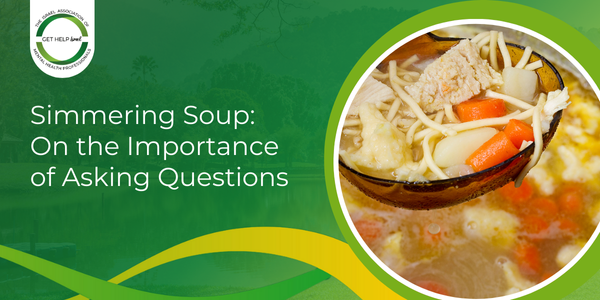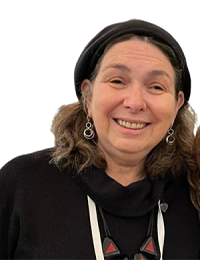Simmering Soup: On the Importance of Asking Questions

We are a fast-paced society. Yet the fragrant aroma of a slow-cooking soup or stew often brings wonderful longing. It beckons us to stop and enjoy the moment. Good questions also beckon us to stop and wonder and be. It is interesting how the four questions have become such a prominent part of the Seder. We often attribute it to the fact that the youngest and cutest, naïve child is called upon to offer the musical rendition. Yet, it is a mistake to stop there.
Like good soup, good questions stop us in our tracks. How many of us have sat at a boring lesson nodding off only to be pulled back by a good question? When we are troubled or wonder, we become engaged. There is something that piques our curiosity. We suddenly have a need to know.
Therapy, more than any other medium has taught me the value of the questions. I am a Jungian psychologist. My training is to allow the patient to pave her or his own path. I see myself as an escort and remind myself over and over again not to talk too much. I do comment and offer associations or suggestions. Here my questions often become important. With humility, I wonder. Sometimes the question sits on the back burner like low-simmering stew that has all but been forgotten. An innocent question may ignite a fire in a chilly room and we are off in a new direction. Or sometimes it buzzes around like a nasty mosquito. The patient tries to swat it away or even kill it, but the mosquito is uncatchable.
Sometimes I will then hear about these questions weeks or even months later. I have dared to wonder about something that the patient never even thought about in their life. Perhaps I wonder why a patient is so sad. I then later learn it is the first time anyone, including the patient has ever noticed the sadness. Or I may ask the mother and wife why she never takes care of herself. She never thought to even question her martyrdom.
We need questions. This is the charge of the creative homo sapiens. This is the wisdom of the Seder. We must begin with questions. When we wonder, we are invested and engaged. I once took a transformative education class in college. We read two excellent books by John Holt about why children fail in school and how they learn. The author commented on an interesting phenomenon that I have thought about repeatedly. Before children begin school, they often ask lots of questions. They are curious and have a drive to learn how the world works. And then they are faced with organized school and they often lose their love of learning. This is where we fail.
We need the freedom to be curious and follow after our heart. This is how new discoveries are made. This is the stuff of creativity and true problem-solving. I attended the same public elementary school through eighth grade. I did well in school and unfortunately, because of this, I used to get made fun of for my studiousness. At one point when I fell in love with diagramming in my English class, my fellow students began to call me “Miss Prepositional Phrase.” I hated it. And then in my last year, I was invited to attend a gifted program in math and science at a nearby school one day a week. In that moment, I had a taste of Gan Eden. The classroom offered self-directed modules and kits. I was allowed to follow after my heart’s fancy. My questions and curiosity guided the way.
We all need questions. If we stop asking questions in life, nothing much is happening. As a therapist, I have learned the value of questions from both sides of the room. I ask my patients questions; sometimes hard and sometimes simple. And sometimes I have no idea of the power of my question until much later in the process. Likewise, patients challenge me with questions about how I work, how I feel, why something is important, etc. Sometimes these questions sit inside of me bothering or cajoling me like the simmering soup. I am much enriched when I struggle with them.
We begin our Seder somewhat naively, assuming the four questions are just a cute moment for the children to show off and become engaged. Yet, the questions are the essence of the night. Pesach is a time of annual renewal and rebirth. Our religion and our stance in the world must never get stale. We are challenged to meet each moment and each season with child-like curiosity and renewal. Keep asking….



